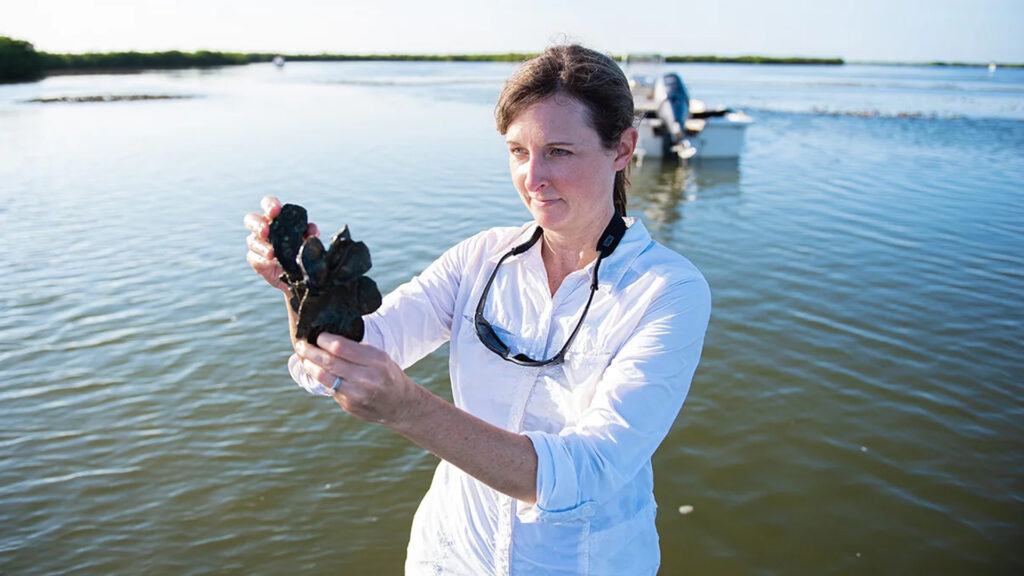By Beatriz Nina Ribeiro Oliveira, University of Central Florida News
A University of Central Florida engineering researcher is part of an international team of scientists who are developing oyster-based shoreline protection for U.S. coastlines.
The work is through a $12.6 million Defense Advanced Research Projects Agency (DARPA)-funded project that seeks to create self-repairing, biological and human-engineered reef-mimicking structures. The project is led by Rutgers University and is a collaboration among researchers in the U.S. and Australia. UCF is receiving about $800,000 for its role in the project.

The reef structures, which UCF is helping to design, will be used to mitigate coastal flooding, erosion and storm damage that threaten civilian and Department of Defense infrastructure and personnel. The project design also encourages the recruitment of non-reef building organisms, such as marsh and seagrasses, to create a healthy ecosystem.
“We’re not only focusing on the oyster reef, but we’re also bringing in a mosaic habitat concept,” says Kelly Kibler, an associate professor in UCF’s Department of Civil, Environmental and Construction Engineering who is leading the work for UCF. “So, we’re not only working with one species but recognizing that multiple species that inhabit the intertidal zone work together to create further resilience.”
The first of two 50-meter reef installations, which are specially designed to maximize oyster recruitment, will be implemented in the East Bay of St. Andrews Bay, near Panama City in the Florida Panhandle.
The overall Reefense project consists of three different teams. The team led by Rutgers University, is focusing on a shellfish reef while the two other teams, led by the University of Miami and University of Hawaii, will work with corals.

Kibler’s group will be monitoring the pre- and post-implementation of the reef structure and assessing how the reef and habitat mosaic influence sediment transport near the shoreline.
“This type of natural infrastructure design project is important especially to a state like Florida that is vulnerable to climate change impacts and rising sea level,” Kibler says.
The project consists of three phases that include iterations of designing, implementing and monitoring the structures. The oyster reef team is currently in Phase 1 and is scheduled to implement the first structure in Phase 2, in 2024.
Kibler says the long-term success of the reefs will depend on recruitment and survival of the oysters. If the project is deemed successful, she says the structures could be used in multiple areas of Florida and elsewhere in the world within the range of oysters.
“We hope to have a cost-effective, transferable design that would be taken up by communities, homeowners and landowners,” she says.
Researcher credentials: Kibler received her doctorate in water resources engineering from Oregon State University. She joined UCF’s Department of Civil, Environmental and Construction Engineering, part of the College of Engineering and Computer Science, in 2014. She is a member of UCF’s National Center for Integrated Coastal Research and Sustainable Coastal Systems faculty cluster initiative.
This piece was originally published at https://www.ucf.edu/news/ucf-is-designing-self-repairing-oyster-reefs-to-protect-floridas-coastlines/
Sign up for The Invading Sea newsletter by visiting here.



